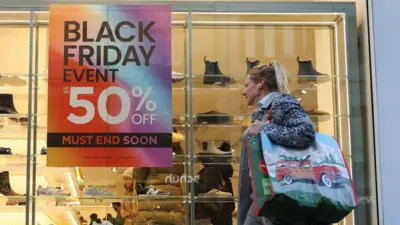We've updated our Privacy and Cookies Policy
We've made some important changes to our Privacy and Cookies Policy and we want you to know what this means for you and your data.
German election: The possible outcomes
- Author, Gavin Hewitt
- Role, Europe editor
The final arguments have been made. Soon, what many regard as a soporific election campaign will be over.
It has been remarkable for its lack of surprises. It tells you something that so much attention has been given to Peer Steinbrueck's finger or Angela Merkel's patriotic necklace.
By far the most likely outcome is that Angela Merkel - Europe's most powerful politician - will continue as chancellor.
During her eight years in office she has protected Germany from a global financial crisis and the possible break-up of the euro.
And yet her approval ratings remain above 50%. If re-elected she will be the only major leader to have survived such turbulent times.
Only Helmut Kohl and Konrad Adenauer of Germany's post-war chancellors have won a third term.
Image source, Reuters
But Angela Merkel and her advisers remain cautious. Although her conservative party, the CDU/CSU, will get the largest number of votes, she is not guaranteed an absolute majority.
Her current coalition partner is the pro-market FDP, the Free Democrats. It has not always been an easy alliance and the electorate seem uncertain what the party stands for.
If the Free Democrats fail to reach 5% of the vote - the level necessary in order to qualify for seats in parliament - Angela Merkel will be forced to seek a grand coalition with the Social Democrats, the SPD.
She has been in coalition with them before, and the public seems warm to the idea. Yet it is fraught with difficulty.
For a start the SPD is reluctant to enter another grand coalition. Their leader Peer Steinbrueck has indicated he would not serve under Merkel.
Image source, AFP
So negotiations to put together a grand coalition could last weeks. The SPD might demand the finance ministry or insist on a nationwide minimum wage.
On Europe there could be divisions. Angela Merkel's strategy remains: weaker euro-zone countries will get help only if they put their house in order. That means reducing deficits and embracing labour reforms.
The SPD has spoken of implementing a Marshall Plan to help lift up some of those Southern European economies. They, like the French president, are for austerity-lite.
A grand coalition might also embolden dissenters within Merkel's own party on European issues.
There is another unknown. Will the euro-sceptic Alternative fuer Deutschland party (AfD) reach the 5% threshold and get into parliament?
It if does, it will deny Angela Merkel a working majority and will also pave the way for a grand coalition. An AfD success would change the European debate in Germany and make it harder to proceed with future bailouts.
Incidentally a grand coalition would complicate UK Prime Minister David Cameron's plans. If he is re-elected in 2015, he has promised to try to renegotiate the terms of Britain's relationship with the EU.
If he is to stand any chance of doing this, he needs Angela Merkel's support. She is against any new opt-outs for the UK but she has indicated that some of what is done at a European level could be done by national parliaments.
In the SPD there is far less inclination to accommodate the UK. They are also in favour of stricter financial regulation.
The most likely outcome is for Angela Merkel to continue in coalition with the FDP. It would be unwise to expect that the German chancellor, freed from the pressure of an election, will change.
She will remain a cautious, careful, step-by-step leader. She has never outlined her vision for Europe and probably never will. One of her advisers once told me that she does not do vision.
Germany will remain Europe's reluctant leader. As Ulrike Guerot from the European Council of Foreign Relations wrote, '"Germany sees itself as a role model rather than as a power with an obligation to lead."
But, whatever the outcome, within weeks of the election the euro zone will throw up fresh challenges. Europe on Sunday night will be watching the result closely.
Top Stories
More to explore
Most read
Content is not available








